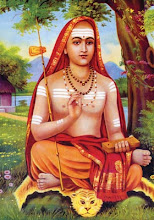Para Dravyani Lostavat -- Treat money/belongings of other as mere stones/pile of mud.
Easy to say isn’t it? And easy to preach as well. We hear many people say that they don’t touch penny of other person. Sounds reasonable but the question would they not touch if instead of a penny, if there is a million at stake? That precisely is question and is what matters.
Best quote to example is from Bharata from Ramayana. Being younger brother of Rama, Bharata had no aspirations of becoming the king. How ever, because of twist in the tale, he had got the entire Ayodhya Kingdom at his disposal. He how ever denied to rule the kingdom that belongs to Rama. That is the reason why Bharata has become an exemplary character in Ramayana.
We need to be vigilant and careful in order not to get tempted by the fortune that comes up for which we are not entitled to. Sometimes the fortune at stake tempts u to invent justification for claiming it and thus calming the conscience and world shut up. But that will not make it lawful possession.
Now we come to a tricky question of what really qualifies as lawful possession of a person and what does not? One thing is for sure, lawfully earned wages, interest, rent of land/house etc., will surely qualify. Lawfully inherited money qualifies. But money pursued from parents by pestering them obviously does not qualify. Similarly money procured by torturing the in-laws for money in form of dowry or kind does not qualify.
The lawful word has changed its meaning offlate and there are few differences between contemporary law and Vedic law. For a Brahmin money or kind procured as donation for performing yagna or other vedic karmas, for teaching etc., comprise of lawful earned money. For Kshatriya, money procured by showing one’s strength in war is lawful. For Vaishyas the money procured through trade in form of profits is lawful. For other castes, money earned by offering services to people is lawfully earned money. Also Manu Dharma shastra says the property of parent is to be inherited by male children where as contemporary law states the property to be distributed uniformly between all children.
Subscribe to:
Post Comments (Atom)

1 comment:
nice blog!!! u often quote from ramayanam!! do u read it??
Post a Comment